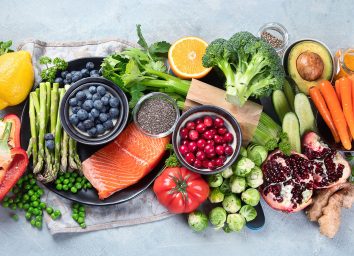The #1 Best Vegetable to Prevent Aging, Says Science

Let's face it-there's absolutely no way to stop the aging process. It's natural for bodies to change over time, and we have to continue to learn how to ride the waves of getting older.
There may not be a way to bring the process to a halt, but there are things that can be done to help naturally slow aging in a healthy way. For instance, there are certain foods you can eat on a regular basis that can provide your body with essential nutrients as you get older, which can in turn improve your overall health and help to reduce your risk of age-related diseases.
An example of this would be that recent studies show leafy greens like kale and spinach having positive impact on the aging process, especially when it comes to your cognitive health.
Continue reading to learn more about the aging benefits of leafy greens, and for more healthy aging tips, make sure to check out 6 Breakfasts Enjoyed by the Longest-Living People in the World.

A 2018 study published in Neurology looked at the specific compounds found in leafy greens (which include things like nitrate, lutein, folate, β-carotene, and vitamin K) and how they may affect cognitive decline over time.
The participants in the study were all between the ages of 58 to 99 and had no instances of dementia or other notable cognitive impairments. After approximately five years, the participants completed questionnaires about their food intake and took multiple cognitive assessments.
The researchers found that those who consumed more leafy greens on a regular basis had slower cognitive decline than those who didn't. Not only that, but the adults who consumed an average of 1.3 servings of leafy greens per day had slower cognitive decline to an equivalent of up to 11 years younger than their current age.

The cognitive effects of eating kale and spinach have been found to not only have an effect on older populations, but also on middle-aged groups as well.
One study from the University of Illinois looked into the cognitive effects of leafy greens on adults between the ages of 25 to 45 because according to researchers, people can begin to notice the impact of cognitive decline as early as their 30s.
What they found was that lutein, a specific compound found in spinach, kale, avocado, and eggs, has protective properties related to cognitive function and development. In fact, the older participants who ate more lutein had cognition results similar to the younger participants who didn't eat as much of this nutrient.
The brain-related benefits of eating leafy greens are endless, but they don't just stop with cognitive health. Kale and spinach have also been found to help lower your risk of diabetes due to their fiber and antioxidant content, as well as lower your risk of some cancers and heart disease.
For tips on how to cook with kale and make some delicious, healthy recipes with it, check out the 15+ Best Kale Recipes for Weight Loss.









